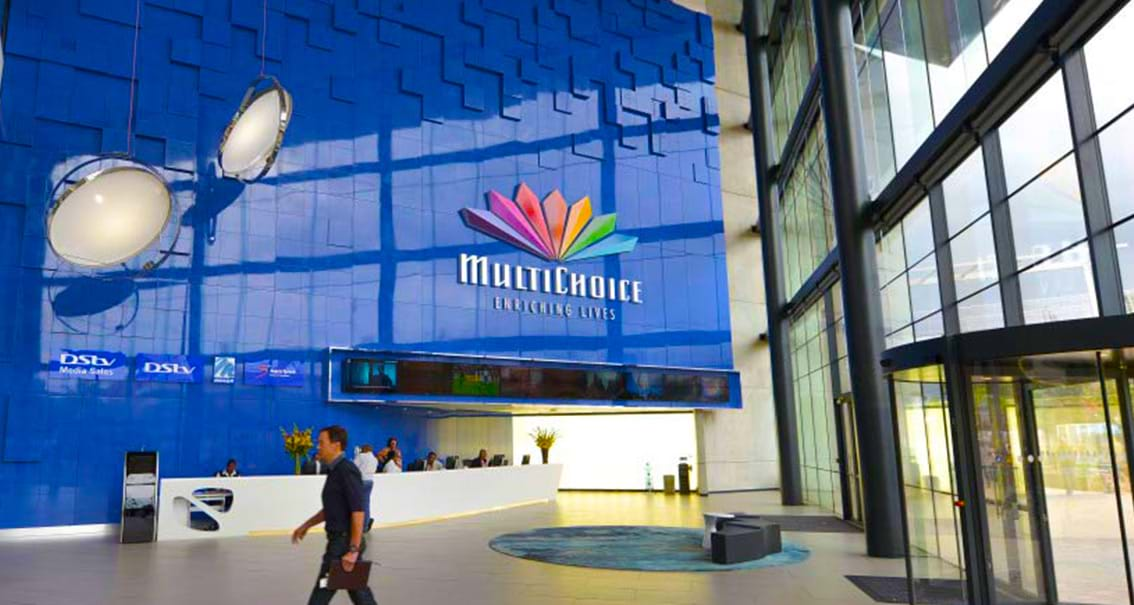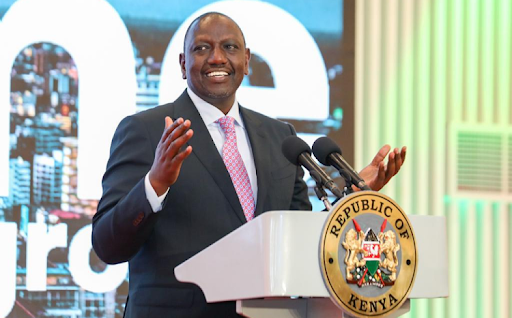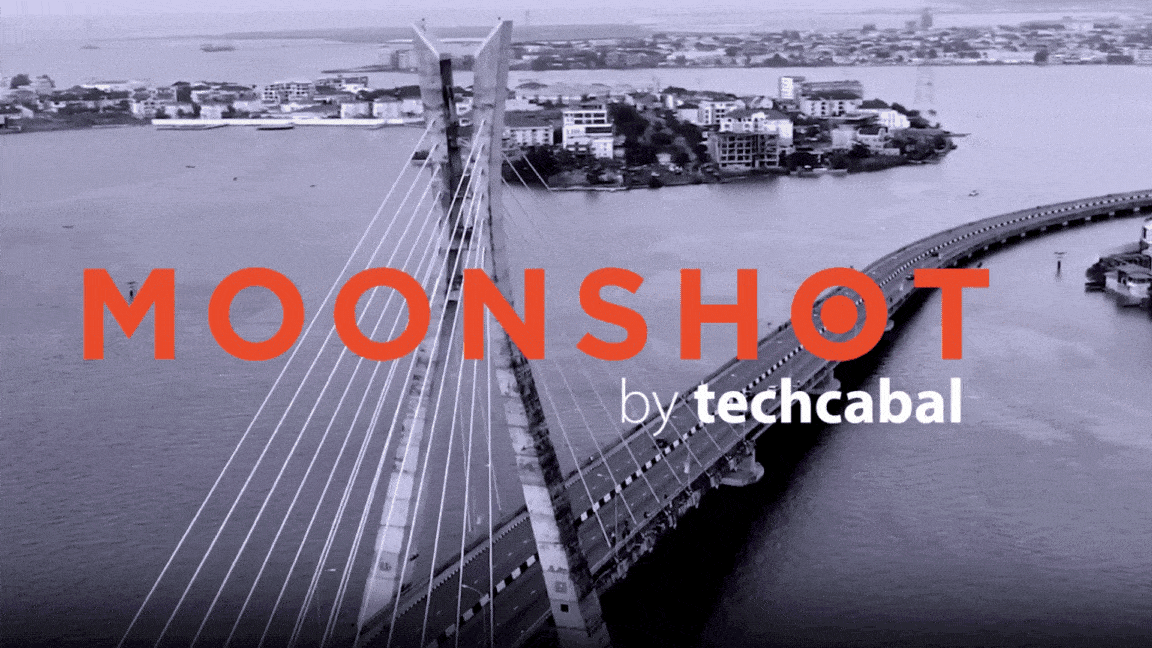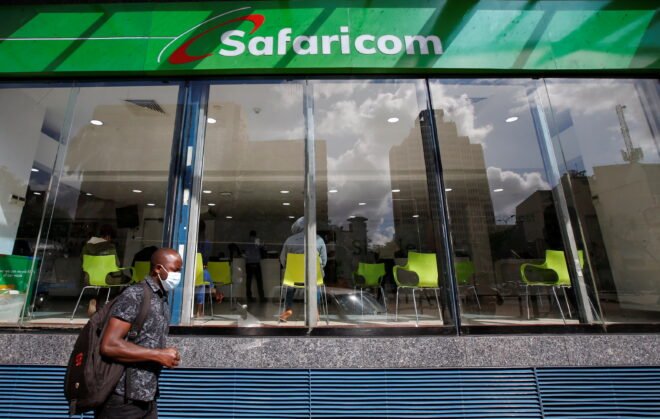

Good morning ☀️
ICYMI, we relaunched our referral programme yesterday! Now, we can bribe reward you for saying nice stuff about us to your network.
Plus, all sign-ups now have a double-opt-in feature. So if you’re referring someone to TC Daily, please ask them to check their inbox and confirm their email addresses so the referral can count!
In today’s edition
- MultiChoice blames 200% profit plunge on loadshedding
- Kenya’s content creator tax has been slashed
- Telkom reports 76.6% plunge in profits
- Uber increases base fares in Nigeria
- Equiano is active in Namibia
- The World Wide Web3
- Event: The Moonshot Conference
- Opportunities
MultiChoice blames 200% profit plunge on loadshedding
According to Multichoice Group’s annual financial results for the year, the company’s profits declined by over 200%, going from a R2.8 billion ($150 million) profit in the last financial year to a R2.9 billion($155 million) loss.
Apart from the weak rand, the company also blamed the country’s intermittent power cuts, also known as loadshedding, as the leading cause for the turnaround.
Is loadshedding to blame? MultiChoice stated that there was a noticeable increase in churn when loadshedding reached stage 4 and above, even when consumers had disposable income.
“This is evidenced by the disconnect between the 290,000 growth in 90-day subscribers (that shows customers still value the group’s products) and the 140,000 decline in the active subscriber base at the end of March (customers are more selective when they sign up to avoid periods of excessive load-shedding),” the company said.
There. However, could be other reasons why MultiChoice is losing subscribers. With the influx of streaming services like Netflix and Disney+ on the continent, MultiChoice has lost customers. In 2021, it warned that Netflix could kill DStv’s relevance.
Zoom out: Loadshedding has become the constant reason for dire financial performances among South African companies. Telkom, which recorded a 76% plunge in profits for the year ended 31 March 2023, also pointed the finger at loadshedding.
Moniepoint ranked 2nd fastest-growing African company
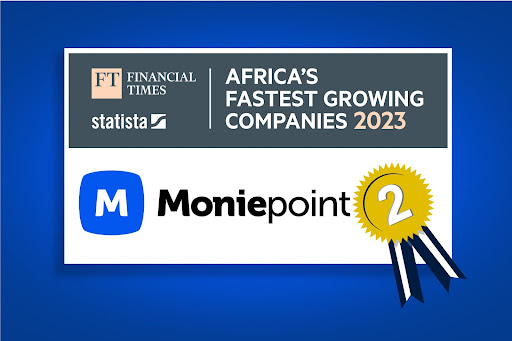
Moniepoint is Africa’s second-fastest growing company, as shown in FTs latest report. We also processed 1 billion transactions worth $43 billion in Q1 alone.
Ruto reduces proposed content creator tax
Content creators in Kenya can now breathe.
A week after President William Ruto ordered review of Kenya’s proposed content creator tax, the tax has now been reduced to 5%.
Per TechTrendsKe, this reduction comes hot on the heels of local bloggers, YouTubers, influencers and other content creators protesting against the tax.
What bill? A bill was newly proposed to extend taxation to the several ways digital content creators are now earning money. This includes payment gained from advertisements on websites, social media platforms, brand sponsorships, affiliate marketing, and even subscription fees which audiences pay to access content or programs. The Kenya Revenue Authority (KRA) even formed a special unit that will oversee tax collection from digital companies. However, local content creators said the tax was utterly unfair and amounted to a side-splitting case of double taxation.
Days after the tax was announced, president Ruto said the bill should be reviewed so that the increased tax doesn’t become a burden that inhibits the digital economy which the country is trying to build.
Telkom reports 76.6% decline in profits
Yesterday, Telkom’s annual results showed that the company is experiencing a decline in profit by 76.6% from 575.3 cents to 134.6 cents—in headline earnings per share (HEPS).
The company also calculated the headline earnings per share without considering the effect of the restructuring cost of R1,065 million ($74 million) and the tax impact of R288 million ($20 million) on the profit after tax.
What is HEPS? It is a financial metric used to measure a company’s profitability and performance. It represents the portion of a company’s net income or profit that is allocated to each outstanding share of its common stock. It is known as a main profit measure in South Africa.
Why the decline? According to Telkom, the significant dip in profitability is attributed to a challenging operating environment caused by inflationary pressures and ongoing power issues in South Africa.
Zoom out: Eskom, South Africa’s electricity utility, is currently implementing the most severe rolling blackouts, also known as loadshedding. This has resulted in households experiencing extended periods of up to 10 hours per day without electricity, causing disruptions to manufacturing processes and negatively impacting businesses.
Uber increases base fares in Nigeria
Yesterday, TechCabal exclusively reported that Uber, a ride-hailing company, increased its base fare from ₦850 ($1.84) to ₦1200 ($2.62) in Nigeria.
The new price adjustment also means customers will now pay ₦25 ($0.054) per minute. Uber’s Country Manager for Nigeria, Tope Akinwumi, told TechCabal in an email that the increase in fare price is due to the current fuel subsidy removal.

”Following an in-depth review of the current fuel subsidy removal, Uber updated fares on the 3rd and 9th June on the app to reflect existing economic conditions. We believe these changes have helped better support drivers in increasing their earning opportunities. Furthermore, we lowered the service fee in February 2022 from 25% to 20% to help enable better-earning opportunities for drivers,” Akinwumi said.
ICYMI: Base fares have been a source of disagreement between drivers and ride-hailing companies in Nigeria in the past week. Last week, the drivers embarked on a nationwide strike that lasted up until Monday, June 12.
Zoom out: Although drivers and ride-hailing unions are dissatisfied with these new prices as they say it still does not cover their costs due to the recent hike in fuel prices, the union is also seeking a 50% decrease in commission and an end to the deactivation of drivers who refuse to work due to the low fares and attendant unprofitability.
Equaino cable comes alive in Namibia
The Equiano subsea cable in Namibia is now active.
The cable is designed to deliver enhanced connectivity to Namibia and the broader SADC region. It also has landing points in Lisbon, Benin, Nigeria, St Helena, Namibia and South Africa.
The Equiano cable is expected to expand the region’s digital infrastructure and create new economic opportunities throughout the region.
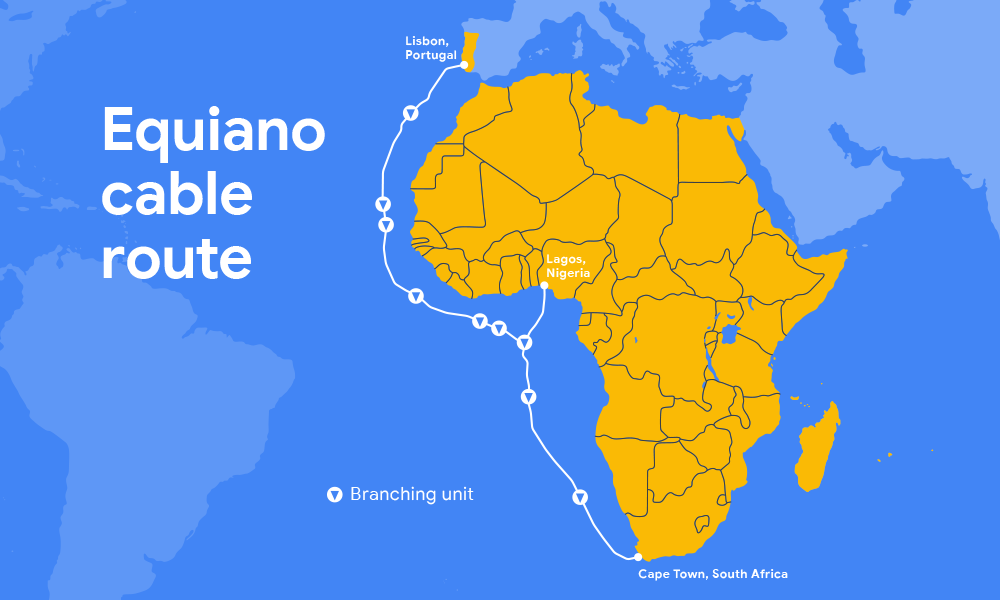
Can it? The cable has 12 fibre pairs and a design capacity of 144Tbit/s and can provide about 20 times more capacity than existing cables connecting Europe and South Africa. It is projected to increase internet penetration in Namibia by 7.5% by 2025.
Similar results can be expected from some other West African countries where, per TechCentral, represent about 31% of Africa’s total population.
The World Wide Web3
Source:

|
Coin Name |
Current Value |
Day |
Month |
|---|---|---|---|
| $25,861 |
– 0.89% |
– 3.72% |
|
| $1,738 |
– 0.67% |
– 3.83% |
|
|
$249 |
+ 6.21% |
– 20.20% |
|
| $15.05 |
– 2.09% |
– 29.07% |
* Data as of 07:00 AM WAT, June 14, 2023.
A 27-year-old digital marketer in Kenya is saving $100 with USDT. Nodo News reports that the digital marketer, who earns $1,200 monthly, is one of many young Kenyans fighting inflation by converting a portion of their SACCO savings every month to the US dollar-pegged stablecoin: USDT.
Puma has begun its own foray into Web3. Yesterday, CoinTelegraph reported that the footwear conglomerate launched a 3D metaverse experience called Black Station. Per the developers, Black Station is an “experiential home” for product drops built to provide “unbridled access” for Puma Pass nonfungible token (NFT) holders.
The Moonshot Conference
This is Moonshot by TechCabal.
Moonshot is a conference that will bring together Africa’s tech ecosystem to network, collaborate, share insights and celebrate innovation on the continent.
Click here to join the waiting list to get more news and updates about this conference.
- The SaaS Accelerator Programme: Africa 2023 has opened applications for its accelerator programme to enable early startups in Africa to receive funding. Selected startups will receive up to $70,000 in funding. Apply by September 7.
- Wise Guys SaaS Accelerator Program is looking to help SaaS startups level up through tailored guidance and support from world-class mentors and experts. Apply before September 7.
- The AAAS Kavli Science Journalism Awards 2023 ($5,000 prize) is now open to applications from reporters doing work for independent news organisations around the world, with articles readily accessible to the public by subscription, newsstand sales or online access, with the submitted work available in English are eligible to Apply by August 1.
- Applications are open for the US $100,000 Africa Food Prize. Applicants must contribute to reducing poverty and hunger, or improving food and nutrition security in measurable terms. They must also make a contribution to providing a vital source of income or employment in measurable terms. Apply by June 17.
What else is happening in tech?
- As LagRide drivers push for lower daily repayments, it’s time to ask if vehicle financing is right for Nigeria.
- Meta appeals Kenyan Court ruling that calls it the “principal employer” of content moderators.
- Infinix brings all-round fast charge technology to the NOTE 30 Pro.
- MTN might still be interested in purchasing Telkom.
- Bolt responds to kidnapping incident involving their driver.
- Tinubu’s 15 days give markets a glimpse of Nigeria’s turnaround.
Want more of TechCabal? Sign up for our insightful newsletters on the business and economy of tech in Africa.
- The Next Wave: futuristic analysis of the business of tech in Africa.
- TC Weekender: weekly roundup of the most important tech news out of Africa.
- Entering Tech: tech career insights and opportunities in your inbox every Wednesday at 12 PM WAT.
- In a Giffy: business decisions powered by data-driven insights and analysis you can trust.
P:S If you’re often missing TC Daily in your inbox, check your Promotions folder and move any edition of TC Daily from “Promotions” to your “Main” or “Primary” folder and TC Daily will always come to you.










